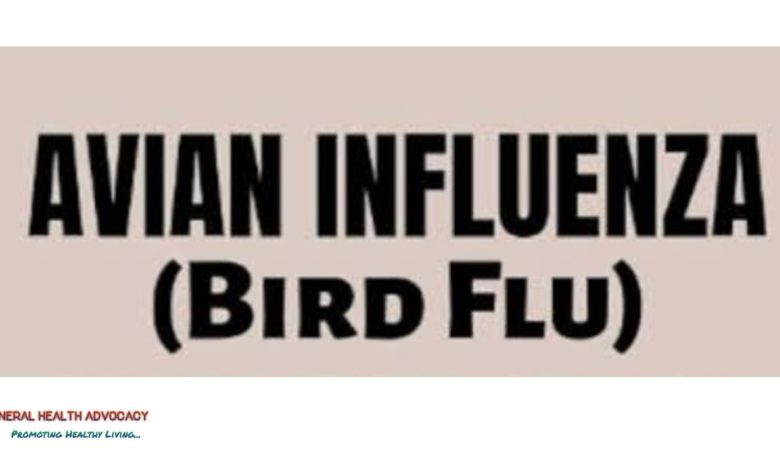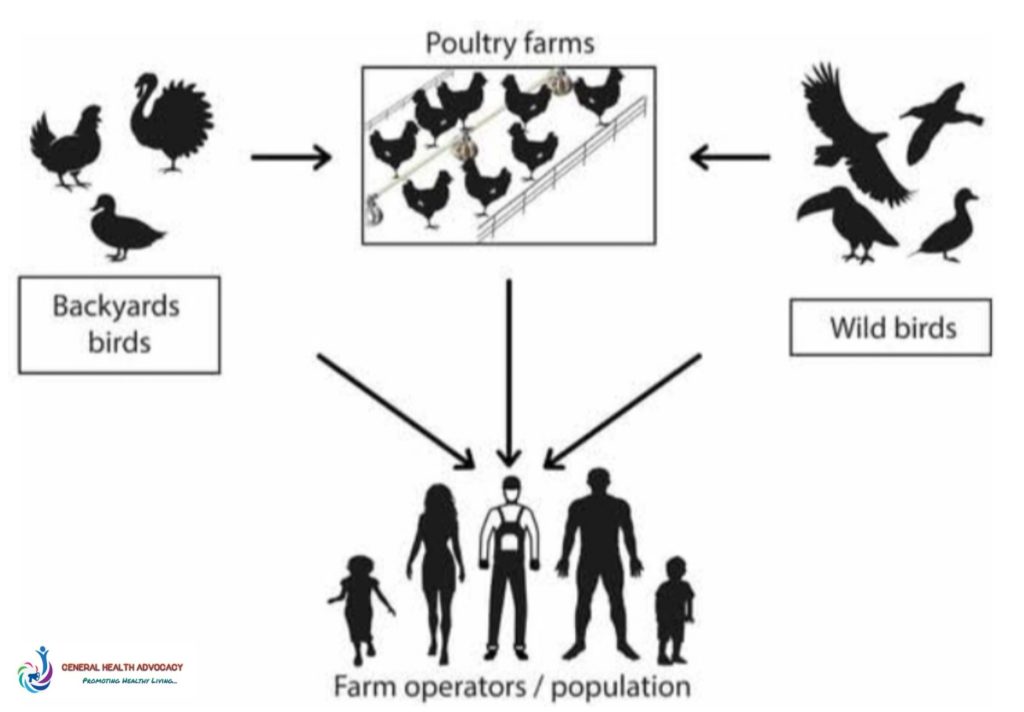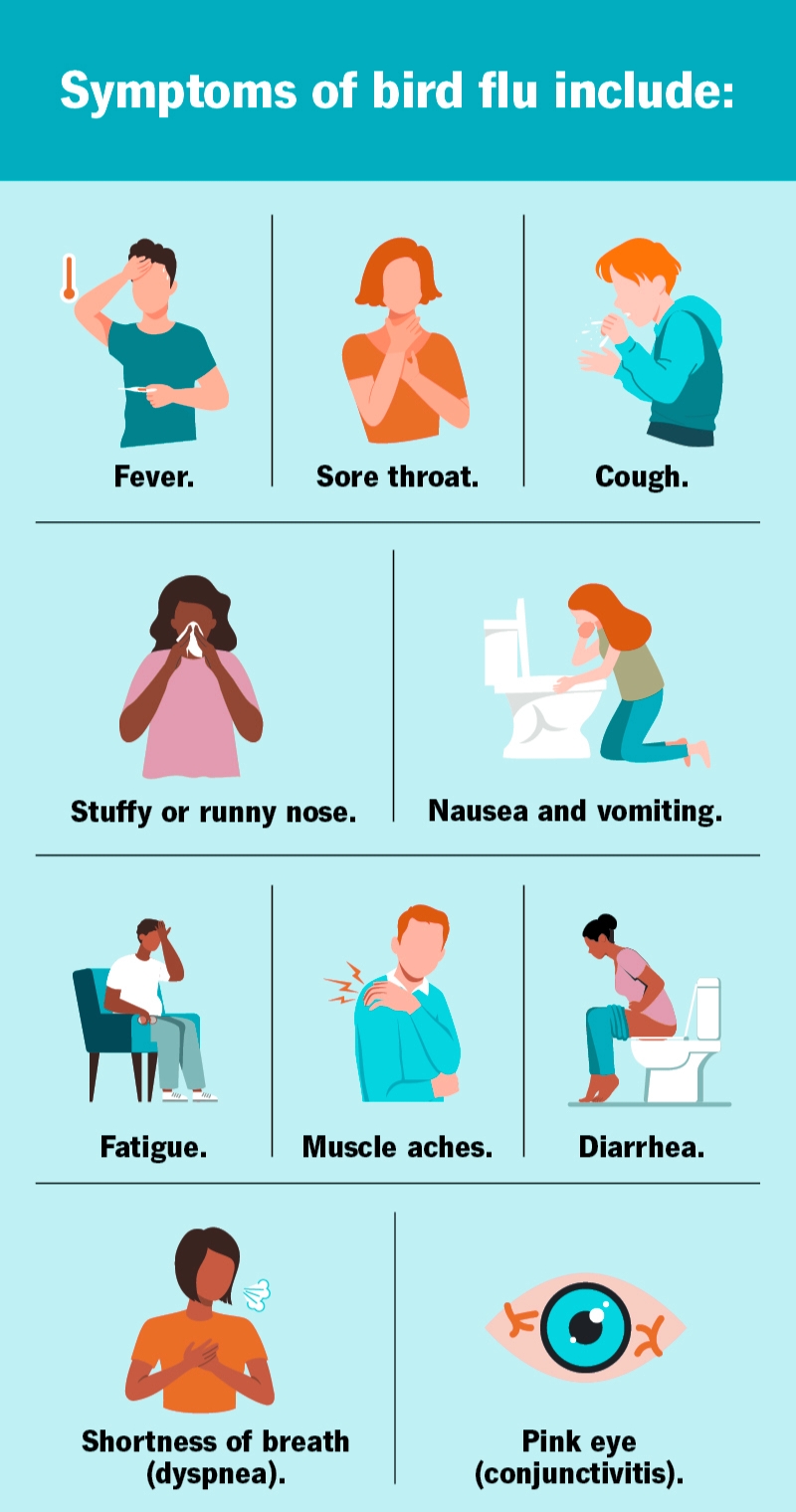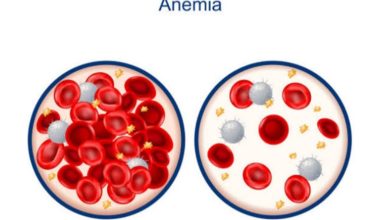Essential Information on Avian Influenza (Bird Flu): Prevention Tips and Treatment Options

Bird flu, also known as avian influenza, is a viral infection that primarily affects birds, including domestic poultry and wild birds. The virus can occasionally spread to humans, leading to severe illness.
Modes of Transmission of Bird Flu
1. Direct Contact: Direct contact with infected birds or their secretions (e.g., saliva, respiratory secretions, feces) is the primary mode of transmission.
2. Indirect Contact: Handling contaminated surfaces or materials (such as cages, clothing, or equipment) can also spread the virus.
3. Airborne Transmission: In some cases, avian influenza viruses can spread through the air over short distances, especially in enclosed or crowded conditions.
4. Consumption of Contaminated Poultry Products: Eating undercooked poultry products contaminated with the virus is a potential route of transmission.

Signs and symptoms of Bird flu (Avian influenza)
Bird flu, or avian influenza, in humans can present with a range of signs and symptoms, which can vary in severity.
Here are the common signs and symptoms:
1. Fever: Sudden onset of high fever, often exceeding 100.4°F (38°C).
2. Cough: Persistent cough, which may be dry or productive.
3. Sore Throat: Irritation or pain in the throat.
4. Muscle Aches: Body aches and muscle pain, similar to those experienced with seasonal flu.
5. Fatigue: Generalized weakness and fatigue.
6. Headache: Persistent or severe headaches.
7. Respiratory Symptoms: Shortness of breath or difficulty breathing, especially in severe cases.
8. Runny or Stuffy Nose: Nasal congestion or runny nose, though less common than with seasonal flu.
9. Gastrointestinal Symptoms: Some individuals may experience diarrhea, nausea, or vomiting, though these symptoms are less typical.
10. Conjunctivitis: In some cases, inflammation of the eyes (conjunctivitis) may occur.
It’s important to note that symptoms of bird flu can resemble those of other respiratory infections, including seasonal influenza. Severe cases of avian influenza can progress rapidly to pneumonia and acute respiratory distress syndrome (ARDS), which may require hospitalization and intensive care.
Read Also

Prevention and Control of Bird Flu
Prevention and control measures focus on reducing human exposure to infected birds and their environments, as well as monitoring and controlling outbreaks in poultry populations.
1. Avoid Contact with Sick Birds: Individuals working with poultry should avoid direct contact with sick birds or their bodily fluids.
2. Practice Good Hygiene: Wash hands thoroughly with soap and water after handling poultry or visiting poultry farms. Use alcohol-based hand sanitizers if soap and water are not available.
3. Cook Poultry Products Thoroughly: Ensure poultry products are cooked to a safe internal temperature (at least 165°F or 74°C) to kill the virus.
4. Use Protective Equipment: Wear protective clothing, masks, and gloves when handling potentially infected poultry or visiting affected areas.
5. Control Measures in Poultry Farms: Implement biosecurity measures in poultry farms, such as restricting farm access, disinfecting equipment, and monitoring bird health.
6. Surveillance and Early Detection: Regularly monitor poultry populations for signs of illness, and report suspected cases to veterinary authorities promptly.

Treatment of Bird Flu Disease
1. Antiviral Medications: Antiviral drugs such as oseltamivir (Tamiflu) or zanamivir (Relenza) may be prescribed to treat avian influenza in humans. These medications work best if started within 48 hours of symptom onset.
2. Supportive Care: Treatment primarily involves supportive care to relieve symptoms and manage complications, such as respiratory support in severe cases.
3. Hospitalization: Severe cases of avian influenza may require hospitalization for intensive treatment and monitoring.
4. Preventive Antiviral Treatment: In certain situations, such as during outbreaks or in high-risk individuals exposed to confirmed cases, preventive antiviral treatment may be recommended.
5. Vaccination (in development): Research is ongoing to develop vaccines against specific strains of avian influenza viruses, especially those with pandemic potential.
Bird flu remains a significant concern for public health and agriculture due to its potential to cause severe illness in humans and economic losses in poultry industries. Prevention through effective biosecurity measures, surveillance, and prompt treatment of cases are crucial to reducing the impact of avian influenza outbreaks.
If you suspect you or someone else may have been exposed to bird flu virus and are experiencing symptoms, it’s crucial to seek medical attention promptly. Early diagnosis and treatment can significantly improve outcomes and reduce the risk of complications.



